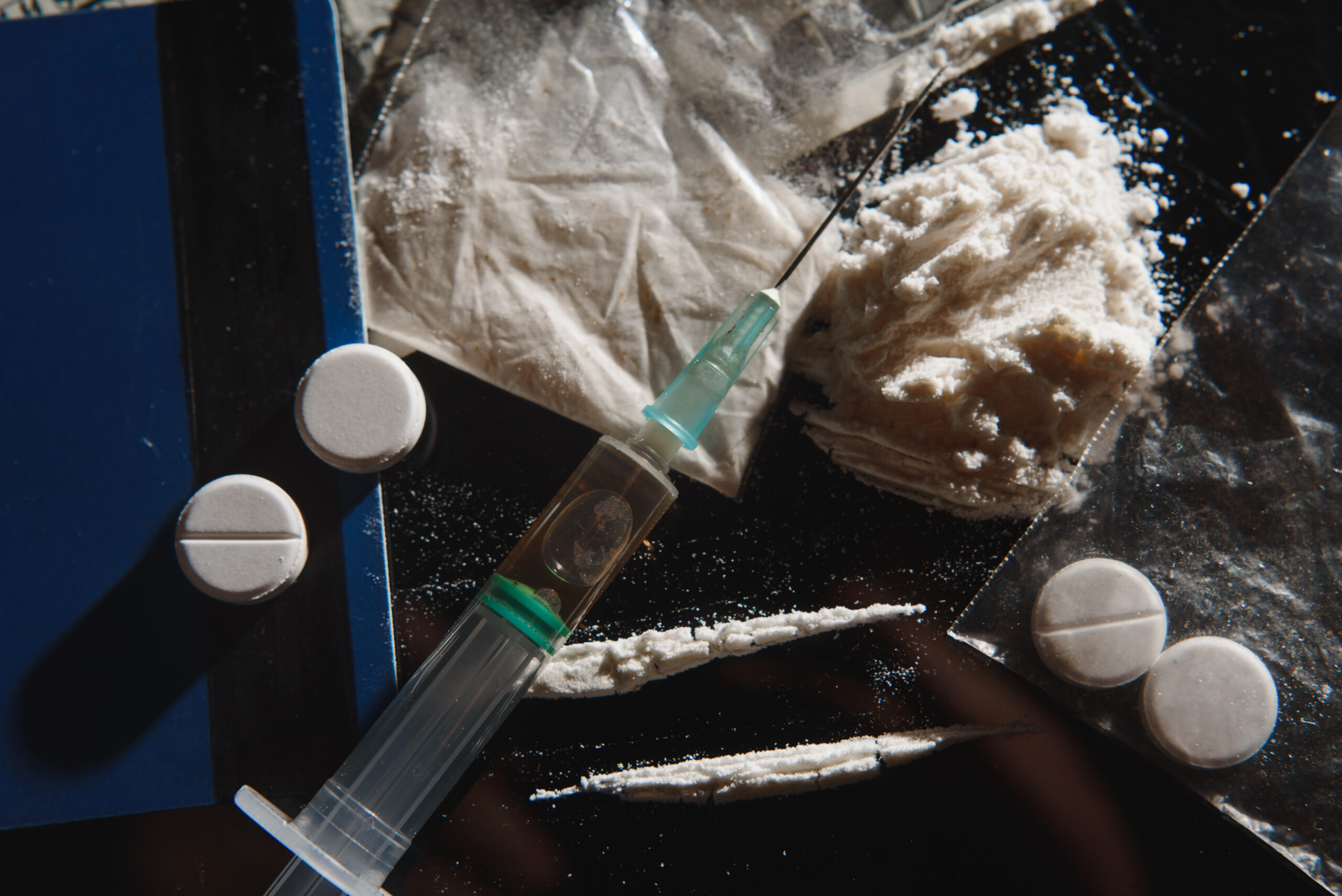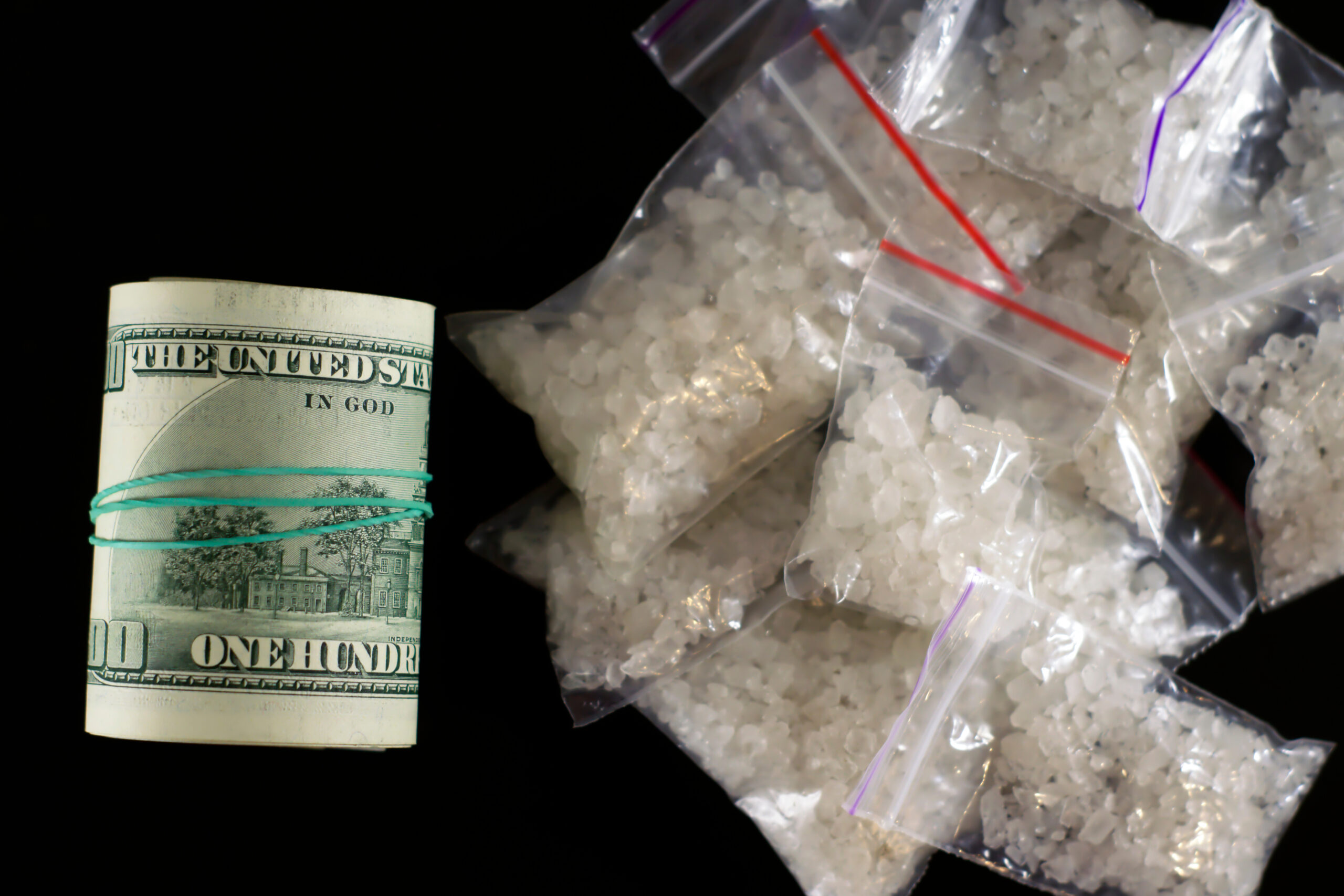A drug-related arrest can have severe consequences, including:

A drug-related arrest can have severe consequences, including:

Possession can be actual or constructive, sole or joint. You have actual possession of an item when it is physically under your control, such as the phone in your hand or the keys in your pocket. You have constructive possession of things which you have the right, ability, and intent to control, even if they are not on your person, such as the clothing in your dresser. Possession is sole if you are the only person who controls the item, and joint if someone else also has the right and ability to control it, such as your spouse or business partner.
You can possess something even if it does not belong to you. If you knowingly accept an item, even with the intent just to hold it for safekeeping or to give it to another person, then you possess it. It is not a defense that you do not own the item, intend to use it, or will profit from the exchange. However, you do need to know that you have the item and must have access to it.
The penalties for illegal drug possession depend on a number of factors, including the identity and amount of controlled substance involved, the person’s criminal record, and whether a firearm was involved.
Our client was facing a 1st degree drug possession charge, but we successfully argued that he was subjected to an unconstitutional search. As a result, the evidence was suppressed and the case was dismissed.
Anoka County, 2014: Our client was charged with 1st degree drug possession and sales in what is believed to have been the largest meth bust in the history of the Anoka-Hennepin Drug Task Force. We successfully arged to a jury that the state could not prove that our client was legally responsible for the drugs found in a locked safe at his home, and he was found not guiltuy.
Dakota County 2015: Our client was facing 2nd degree drug charges after selling to a police informant. We successfully argued to a jury that our client was entrapped by the informant, and hew was found not guilty.
Dakota County 2018: Our client had two significant drug charges in two separate files — two 1st degree charges and one 2nd degree charge. Our client was still looking at a 75-month presumptive sentence, but we convinced the judge to give him a downward departure to 90 days in the workhouse with work release and 20 years of probabation.
Our proven record speaks for itself. Read more about the successful outcomes we’ve reached on behalf of our clients.

Minnesota state law defines “sell” very broadly, including:
Minn. Stat. § 152.01, subd. 15a.
The penalties for illegal drug sales depend on a number of factors, including the identity and amount of controlled substance involved, the person’s criminal record, and whether a firearm was involved.
A person who intentionally aids, advises, hires, counsels, or conspires with or otherwise procures another to commit a crime is also guilty of that crime. If you knowingly facilitate an illegal drug sale, for example by driving someone to the scene, you can be charged.
In federal cases, it is very common for the Government to charge a conspiracy. A conspiracy is simply a group of people working to obtain a common objective. In a drug case, the conspiracy may include people who:
A person who intentionally aids, advises, hires, counsels, or conspires with or otherwise procures another to commit a crime is also guilty of that crime. If you knowingly facilitate an illegal drug sale, for example by driving someone to the scene, you can be charged.
In federal cases, it is very common for the Government to charge a conspiracy. A conspiracy is simply a group of people working to obtain a common objective. In a drug case, the conspiracy may include people who:
At the federal, state, and local level, police and investigators use a variety of techniques to pursue charges and investigations for drug crimes.
One prominent technique is to use informants or cooperating defendants. These people are often suspects themselves and cooperate with law enforcement to make things go better for themselves. Sometimes informants simply pass along information the police can use, but often they are used to conduct controlled purchases. A controlled purchase is when law enforcement arranges and monitors a drug transaction. For example, an officer may direct an informant to purchase a quantity of controlled substance, monitor exchanges between the informant and the dealer, provide the informant with marked buy money, and set up surveillance for the exchange. Sometimes an informant is fitted with a recording device, and sometimes he is accompanied by an undercover officer.
Wiretaps and electronic surveillance are common in large federal investigations of drug trafficking organizations. Wiretaps are often used to identify persons involved in drug trafficking and their roles in the organization. Warrants are commonly obtained to search cell phones or to obtain text messages from phone service providers.
Searches are also very common in drug investigations. Many searches – especially of homes – are done pursuant to a warrant, but there are also many instances in which law enforcement can conduct a search without a warrant. One example is consent. If you agree to let an officer search your person, your car, your belongings, or your home, the officer can proceed with the search even if there is no warrant or no basis for getting a warrant. A warrant is generally not required to search a vehicle if it has been lawfully stopped and there is probable cause to believe it contains contraband or evidence of crime. The odor of marijuana (burnt or raw) is often cited to justify the warrantless search of a vehicle.
Once a suspect has been arrested, the police will typically read a Miranda warning and ask the suspect to give a statement. You should always talk to an attorney before talking to the police. Sometimes the police will try to get the suspect to act as an informant, and they may offer incentives for the suspect to cooperate. Investigators routinely review the recorded jail calls of drug suspects who are held in custody.
The attorneys at F. Clayton Tyler, P.A. have the skills and experience to defend you, whether your case is a first-time fifth-degree possession charge or you are accused of leading a multi-state drug trafficking organization. Some cases present mostly issues of fact – such as whether the defendant knew the drugs were in his car, whether the defendant was involved in the drug trafficking activity, or whether the police and informant are telling the truth. Other cases present mostly issues of law – such as whether a search was legal or whether a confession was voluntary. Still other cases are less about what already happened, and more about moving forward and obtaining the best possible resolution.
Ultimately, the resolution of your case will depend on the facts, your history, and your goals and priorities. At F. Clayton Tyler, P.A., we know that every case and every person is different. We are very proud of our record, but we also take pride in giving our clients honest assessments of their cases – both strengths and weaknesses.
You need Straight Talk and Honest Answers from a team which has proven it can get results. Contact us today to learn more.
Our defense attorneys regularly appear in both state and federal courts around the Twin Cities, including Minneapolis, Edina, Minnetonka, and Brooklyn Center (Hennepin County); St. Paul and Maplewood (Ramsey County); Anoka (Anoka County); Stillwater (Washington County); Shakopee (Scott County); Chaska (Carver County); Hastings, West St. Paul, and Apple Valley (Dakota County).
We also defend drug cases across the state, and have handled cases in many Minnesota counties, including Sherburne County (Elk River), Wright County (Buffalo), Chisago County (Center City), Isanti County (Cambridge), Rice County (Faribault), Goodhue County (Red Wing), Stearns County (St. Cloud), Blue Earth County (Mankato), Olmsted County (Rochester), and St. Louis County (Duluth).
If you are facing a criminal charge, you need professional, personal representation. Our team of attorneys will offer you Straight Talk and Honest Answers about your case.